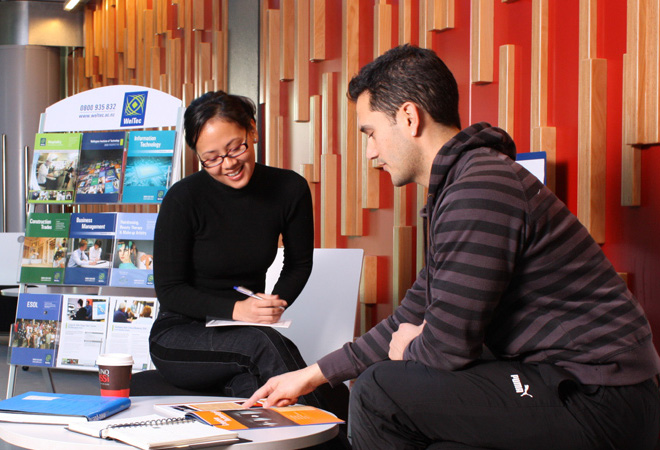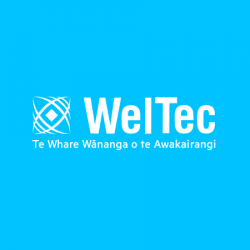
Coffee Break Guides on Tertiary Teaching
Status
Completed: 30 June 2010
Project Details
A project to develop 11 short guides on tertiary teaching for new lecturers and tutors on topics such as education technology, embedding literacy and supporting Māori students. A Wellington Institute of Technology (Weltec) project.
Aims:
The project aimed to produce a series of resource booklets for recently-appointed lecturers and tutors that provided an overview of each topic, bullet point advice on each topic and information on where to go to find out more about each topic.
Methodology:
The guides were developed as:
- downloadable PDFs
- a complete set of print documents sold by Ako Aotearoa.
Team

Paulene Crook
Project Leader
Wellington Institute of Technology (Weltec)Status
Funding
$6,187.50 (excl GST)
Key Findings
Findings on citing and referencing
- All students must acknowledge their sources using citations and referencing.
- Teachers need to demonstrate good practice by correctly citing and referencing all the material used or referred to in the creation of the teaching materials.
- Teachers must understand accurate citing and referencing and be able to develop these skills in students.
- There are a number of citing and referencing styles.
- Librarians can teach people how to use each style.
Findings on effective presentations
- Presentations should be designed using the right visual layout, suitable software and set out using the right structure.
- They should be written to make sense by someone who hasn't attended the presentation.
- They should be designed for interaction and readability and to transition well.
- A presentation shouldn't be too cluttered, the layout should be consistent and should stand up to copyright scrutiny.
Findings on credit transfer
- Credit transfer and assessment of prior learning avoids duplication of study.
- Other benefits include making it easier for students to move between programmes and institutions, making it quicker for students to complete their qualifications and providing a pathway to higher qualifications.
Findings on educational technologies
- Educational technologies such as Web 2.0, social networking and video conferencing are becoming popular for delivering course information and classes to students in a variety of formats.
- The technologies allow tutors and education facilitators to teach in a variety of styles.
- Although the technologies are popular, some of the terms and jargon used in them can be difficult for academic staff to come to grips with.
Findings on embedding literacy
- Increasing the literacy, language and numeracy skills of the workforce is a key government priority.
- The benefits of higher literacy, language and numeracy skills, include improved health, housing and community participation.
- The Tertiary Education Commission (TEC) is providing funding to polytechnics to assist with the development of literacy and numeracy resulting in better outcomes for learners.
- One strategy that is used is Embedded Literacy.
- Embedded Literacy is explained as 'concurrently developing language, literacy and numeracy and vocational competence as interrelated elements of one process' (Courtenay and Mawer, 1995).
- Approaches to embedding literacy and numeracy are more likely to be successful where the links between literacy, numeracy and vocational learning are identified clearly and explicitly.
- Research into effective embedded literacy and numeracy approaches emphasises the importance of the relative timing of literacy, numeracy and vocational instruction.
Findings on engaging Pasifika students
- The term Pasifika does not refer to a single nationality or ethnicity, but is a collective term for a diverse range of people from the Pacific region.
- Pasifika education success and retention rates are being monitored by the government.
- Interacting with Pasifika students and using Pasifika greetings and language can help engagement.
Findings on student study
- When students internalise and synthesise thoughts by putting notes into their own words, it makes those words more memorable.
- When students can fluently express an idea in their own words, they are more like to have really understood an idea.
Findings on the National Qualifications Framework
- The National Qualifications Framework (NQF) is administered by the New Zealand Qualifications Authority.
- It is a collection of unit standards, achievement standards and qualifications.
- NQF is designed to provide nationally recognised, consistent standards and qualifications and recognition and credit for all learning of knowledge and skills
- The NQF is a three-pronged quality system of national standards, accredited organisations and a moderation system.
Findings on student workload
- To complete a programme of study successfully, students are required to engage in a number of teacher and/or self-directed learning activities.
- Student workload is the time taken by average students to complete the learning activities.
- Learning activities can be divided into instruction (teacher-directed activities, eg, lectures, practicals and laboratory work); learning activities (student-directed, eg, attending lectures and performing specific assignments); and assessments (eg, oral or written examinations and essays).
Findings on supporting Māori students
- Establishing relationships between tutors and the class are fundamental to learning.
- Many Māori students are uncomfortable sharing with or contributing to group activities when they are clustered with people they don’t know.
Findings on understanding students
- Understanding learners is vital to good teaching practice.
- To ensure students are successful, lessons created must meet their needs.
- A learner profile is a good way of establishing the needs of learners.
- There are many tools available to help teachers understand their learners and give them a profile of their learners.
Key Recommendations
Provide access to the guides | Make the findings and the guides written in response to the findings available in different formats to ensure they are accessible.
Ensure the guides can be used and adapted | Give people permission to use and adapt the guides (provided they attribute Weltec and Ako Aotearoa as outlined in the Creative Commons copyright statement).
Short guides on tertiary teaching by Paulene Crook. 2nd edition.
(PDF, 530 KB, 2-pages).
- 1 May 2012
Short guides on tertiary teaching by Paulene Crook. 2nd edition.
(PDF, 493 KB, 2-pages).
- 1 May 2012
Short guides on tertiary teaching by Paulene Crook. 2nd edition.
(PDF, 177 KB, 2-pages).
- 1 May 2012
Short guides on tertiary teaching by Paulene Crook. 2nd edition.
(PDF, 717 KB, 2-pages).
- 1 May 2012
Short guides on tertiary teaching by Paulene Crook. 2nd edition.
(PDF, 1.22 MB, 2-pages).
- 1 May 2012
Short guides on tertiary teaching by Paulene Crook. 2nd edition.
(PDF, 1.11 MB, 2-pages).
- 1 May 2012
Short guides on tertiary teaching by Paulene Crook. 2nd edition.
(PDF, 1.05 MB, 2-pages).
- 1 May 2012
Short guides on tertiary teaching by Paulene Crook. 2nd edition.
(PDF, 302 KB, 2-pages).
- 1 May 2012
Short guides on tertiary teaching by Paulene Crook. 2nd edition.
(PDF, 455 KB, 2-pages).
- 1 May 2012
Short guides on tertiary teaching by Paulene Crook. 2nd edition.
(PDF, 799 KB, 2-pages).
- 1 May 2012
Short guides on tertiary teaching by Paulene Crook. 2nd edition.
(PDF, 292 KB, 2-pages).
- 1 May 2012